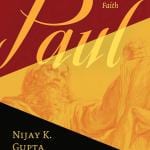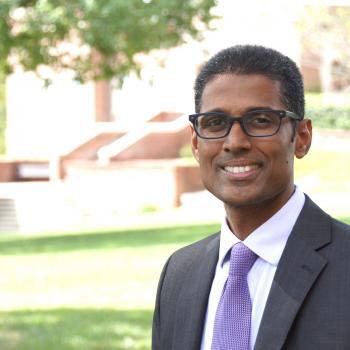This blog series spotlights 50 NT scholars and their research. The goal of this series is to introduce readers to a wider circle of scholarship than they have encountered. The majority of people on this list are early or mid-career NT scholars who are doing great research and writing.
Explain why you love teaching and/or writing, and why it brings you vocational satisfaction.
I have loved teaching since I was a kid. I seem to have a knack for taking complicated topics and making them accessible. It’s the same with writing. I enjoy trying to figure out how I will communicate what I have learned in my research to a new audience, be they scholars or lay people. Early on in my career I was working in a church and realized I wasn’t fully prepared to teach the people God had called me to serve. So I returned to seminary with a ministry goal in mind. I wanted to help people understand what they believe and why they believe it. That has become my personal mission in life and everything I teach write and do emanates from that core value. Even now, as I have entered administration, I see that goal ahead of me, even if it is worked out in a different context. I never expected to get a PhD, much less be a New Testament scholar. But I receive deep satisfaction and enjoyment when I know I have helped someone connect with the Bible in a new or different way.
What is one “big idea,” emphasis, or theme in your scholarship that you hope impacts the way students and scholars read and understand the NT?
I have done quite a bit of work on slavery and the New Testament. One thing I try to communicate is that slavery in the first century was just as ugly and repressive as it was in any other time in history; especially in the antebellum United States. I have read or heard many descriptions of slavery in the New Testament as a more benign institution. But when we look more closely, that is hard to support. There is a tension for us as we read the Bible and, at times, the very proslavery comments rub us wrong. We don’t live in the world. But if we can accept the Bible for what it is, time and culture bound as it may be, then I think the Bible, especially the New Testament, can help us navigate difficult topics like slavery.
Who is your academic hero and why?
Charles Holman was my first New Testament professor Regent University. He didn’t write a lot, but he was dedicated to his students. He certainly had great potential as a scholar and did publish peer reviewed articles in respected journals and a couple of monographs. But his dedication to his students and their future ministry and careers caused him to sacrifice for them. I wouldn’t be a scholar today if it wasn’t for him.
As equally important is J. Lyle Story, also at Regent University. Lyle not only taught me Greek, he allowed me to explore in my studies in ways that allowed me to grow at my own pace. Like Dr. Holman, he too could have been better known in the field, but he dedicated his life to his students. We still talk on a regular basis and I tell him, if it wasn’t for him I would never have believed in myself if it wasn’t for his patience and encouragement.
Name a few academic books that were formative for you as a student.
The Theology of Paul the Apostle – James D.G. Dunn (Eerdmans, 1998) Dunn’s work was my first introduction to thinking about Paul and his ministry in a systematic way. While I may not agree with Dunn on everything today, it certainly laid the groundwork for my own studies.
A History of Israel – John Bright (Westminster John Knox) Bright’s book helped me put the story of Israel in the bible into a wider historical context. While it is an older work, it was very formative for my understanding of Israel in the context of the Ancient Near East.
Biblical Archaeology Review Magazine – I have read it for 30 years and always learn something new.
Read Byron’s Books
I (Still) Believe: Leading Bible Scholars Share Their Stories with Thoughts on Faith and Scholarship
A Week in the Life of a Slave (IVP)
Follow Byron’s Work ONLINE
Follow Byron on Social Media
If you ran into me at SBL, and you didn’t want to talk about New Testament studies, what would you want to talk about?
Cycling. Lori and I have become big fans of riding our bikes every chance we get.
What is a research/writing project you are working on right now that you are excited about?
I am working on a commentary on the Apostles’ Creed. Having been a part of a church the recites the creed, I recognize that not everyone understands the biblical foundations for it. I am trying to connect what might seem like rote statements to biblical foundations while attempting to suggest how we can apply those statements to our lives.



















